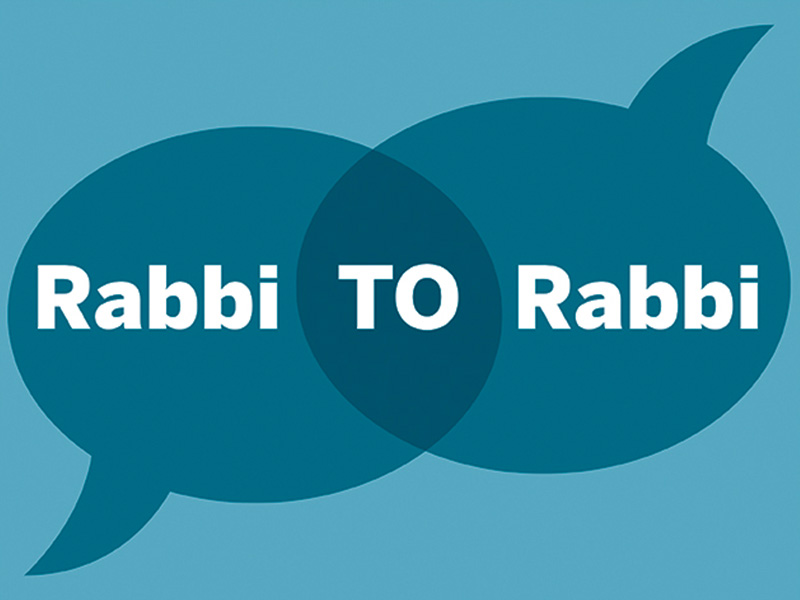Our 21st-century web-based reality has affected the way religion is studied and practised, but while the Internet can provide content, it can’t provide physical community
Rabbi Adam Cutler
Beth Tzedec Congregation, Toronto
Rabbi Adam Scheier
Congregation Shaar Hashomayim, Montreal
Rabbi Scheier: Recently, a media marketing firm interviewed me for a segment they were producing about religion and the web. Just as our 21st-century web-based reality has impacted practically every area of human endeavour, it has affected the way religion is practised. From Googling halachic questions to Facebook conversations that refine opinions in the model of the beit midrash, a religiously engaged life looks different today than it did in the pre-Internet era.
What are some of the ways you have observed religious life being influenced by the Internet, and is there merit in waxing nostalgic for a less web-obsessed era?
Rabbi Cutler: There are a lot of wonderful websites filled with contemporary, relevant Jewish sources. Indeed, I often instruct young adults approaching the age of bar/bat mitzvah to consult Rabbi Google.
But while the Internet can provide content, it can’t provide community.
Various attempts have been made at organizing minyans (especially for Kaddish) via the web. Many authorities, while applauding the ingenuity, nevertheless rule that a quorum cannot exist in the ethers of the Internet. Rather, it is physical presence that matters.
Online communities are not the same as physical communities. The recitation of Kol Nidrei in a filled room is not the same as live-streaming a Yom Kippur service. The personal shivah call is not the same as Skyping in. Facetiming a wedding isn’t the same as actually dancing with the bride or groom.
How does your digital-free Shabbat compare with your plugged-in week?
Rabbi Scheier: I imagine this is the moment in history when traditional Shabbat observance least resembles our weekday realities. Instead of simply refraining from commerce and electricity and the like, we have added another area of observance: the withdrawal from our essential forms of communication, connection and study.
That being said, perhaps the contrast highlights the power that a community can offer. In a Facebook era where we count even remote acquaintances as “friends,” the authentic friendships developed in community are even more treasured. In a Twitter age that values brevity of expression, deeper and more-developed thoughts might be more appreciated. And in a world where so much information is easily accessed by dint of a few keystrokes, how precious is the opportunity to ponder those deep questions about life, God and religion – questions to which Google has no satisfying answer!
Do you think that a digital era challenges Shabbat observance, or does it make Shabbat observance more satisfying?
Rabbi Cutler: As I often tell people, there are few things as satisfying as putting away my cellphone before Shabbat. I am less distracted. I spend less time thinking about my response to whatever I’m hearing or reading. I spend less time thinking about what I have to do next. I can actually think about what I am hearing. I can be present in the moment. Life without live-tweeting is a life much better lived.
What, though, of individuals who do not share our commitment to Halachah or understand it in a way that would not prohibit cellphone usage on Shabbat?
Certainly, many Jews bring their phones to shul. Sometimes they may be scrolling through Instagram. Other times they may want to keep tabs on a sick child or parent. While cellphone usage in the sanctuary may be inappropriate for a variety of reasons, what about the foyer or during kiddush?
I am a proponent of meeting Jews where they are. I don’t think it is our place, as rabbis, to judge. Yet, in the sacred space of the synagogue building, I think it is wholly appropriate to ask people to put away their phones on Shabbat.
In an individually oriented society, we too often fail to sublimate our personal desires for communal norms. There are moments – and I believe that being in shul on Shabbat is one of those moments – when we should give-up personal desires in order to be fully part of something greater than ourselves. This is an expression of communal and religious solidarity, as well as an indication that one can transcend the self in a web-obsessed world that preaches personal happiness as the ultimate virtue.
